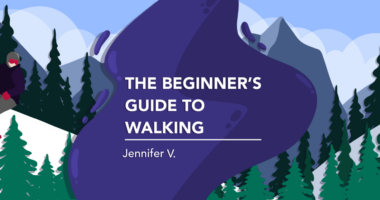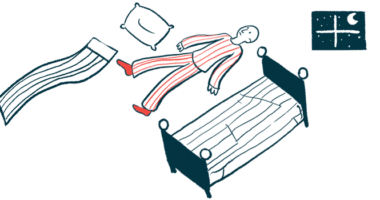My thoughts on deciding when to disclose a disability
The internet age can make privacy concerns challenging

When was the last time you Googled your name? When I do it, I find my column here at Neuromyelitis News.
My work as a post-secondary teacher is rewarding, but it’s also important to demonstrate my expertise. That’s why many of my students search for my professional profile online. I’m sure they’ve found my columns, but it still takes me by surprise when I find out they’ve read them.
Yet I wonder, does my public profile ever affect me negatively? Are there times when I shouldn’t disclose my neurological condition?
At work
It’s a real point of pride that I’ve only missed one day of work since my neuromyelitis optica (NMO) diagnosis. That’s 13 years of managing my invisible disease without anyone being the wiser.
While I’m happy in my current career path, I recently threw my name in for a new opportunity. I was interviewed for the job and was optimistic about it. I don’t know whether my digital persona is to blame for not getting it, but I do wonder if having NMO is a factor in these types of decisions.
I think it’s fair to employers that I disclose my disability, but only if it affects my daily delivery. So far, it hasn’t. What’s relevant to them is that I operate in a professional manner. If I ever need to disclose my disability because it interrupts my workflow, I’ll be sure to present solutions about how to best get the job done.
When dating
I’m fortunate that my disability happened when I was already in a long-term committed relationship. Don’t get me wrong, there was a lot of learning for both of us. But overcoming my illness together made us a stronger couple.
I often see younger patients ask on social media about when they should disclose their NMO diagnosis while dating. I think this tough conversation should happen around the same time that you’re discussing your preferences regarding children and your religious beliefs. These topics can be deal breakers.
People with NMO are tough and resilient problem solvers. If people don’t see that as a strength, it’s really their loss.
What are your thoughts about disclosing? Please share in the comments below.
Note: Neuromyelitis News is strictly a news and information website about the disease. It does not provide medical advice, diagnosis, or treatment. This content is not intended to be a substitute for professional medical advice, diagnosis, or treatment. Always seek the advice of your physician or other qualified health providers with any questions you may have regarding a medical condition. Never disregard professional medical advice or delay in seeking it because of something you have read on this website. The opinions expressed in this column are not those of Neuromyelitis News or its parent company, Bionews, and are intended to spark discussion about issues pertaining to neuromyelitis optica spectrum disorder (NMOSD).








Leave a comment
Fill in the required fields to post. Your email address will not be published.